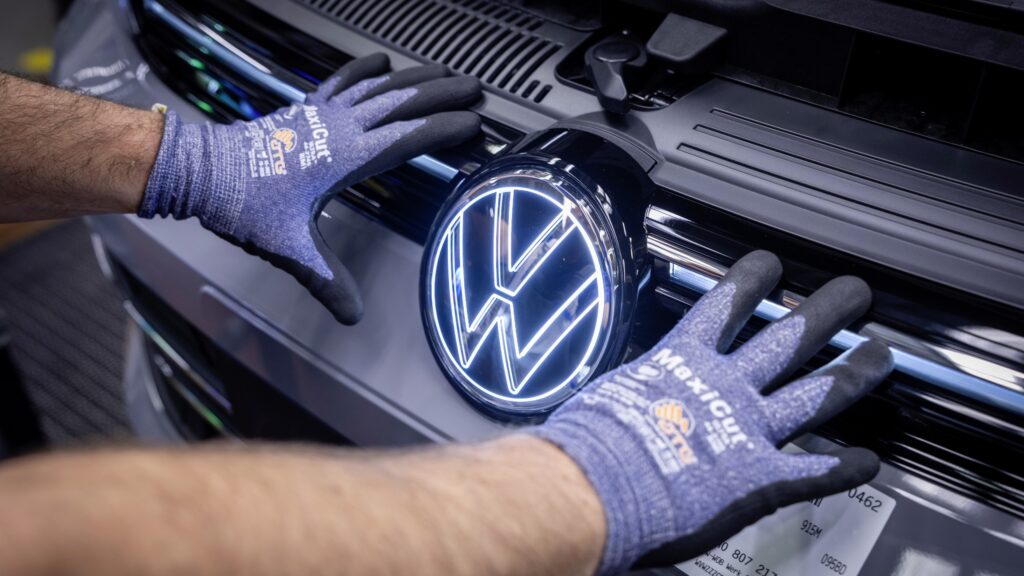
In what turned out to be the longest union negotiations in its history, Volkswagen agreed to not immediately close plants or conduct sweeping layoffs while workers agreed to back off on further strikes.
In negotiations since September, and after a grueling 70 hours of labor talks, Germany’s largest automaker will keep all 10 German plants operating and delay involuntary layoffs until 2030. Volkswagen appears to have removed 10% wage cuts from its side of the labor proposals as well.
Although this is good news for employees in the short term, the union deal doesn’t fix the fact that VW is struggling in Europe and will still need to manage a restructuring plan that includes shedding more than 35,000 positions, either through early retirement packages or buyouts.
According to Reuters, future job cuts will occur as overall production decreases by about 734,000 vehicles. In addition to the later-date cuts, the union conceded its demands for 7% wage increases. Even so, however, analysts say the reductions in workforce and vehicle output will not be enough.
“35,000 job cuts on a demographic curve up to 2030 is likely not enough and over a too longer time frame to address the current stagnation we are seeing across the European market,” said Matthias Schmidt, a European auto industry analyst to Reuters. “I would say the unions can take more from this than VW, but realistically, because of the complicated structure of the company, this was probably the best they could have realistically hoped for.”
The New York Times also reports that the Germany economy will continue to shrink well into 2025. More than 120,000 German workers have ties to Volkswagen, and following a strike that saw 100,000 metal workers walk out earlier this month, another one was planned for January.
Volkswagen shares rose 2.4% following the labor union agreement but remain 23% down for the year. Increased competition from China and a slowdown in interest in electric vehicles are only part of the problem, and the woes are not VW’s alone.
“Other companies are also pursuing job-cutting plans, and VW appears to be just the beginning,” said Alexander Krueger, an economist in Germany. “Competitive price pressure will probably require further adjustments at a later date.”
VW’s labor costs took away a larger chunk of revenue in 2023—15.4% to be exact, compared to the country’s other automakers. For example, 12.7% of Porsche‘s profits went to labor costs, while farther down the line, BMW exhibited a bit more efficiency with 9.5% of its labor expenses eating into its revenue dollars.
“High energy prices, a complex bureaucracy, aging public infrastructure, and geopolitical developments” have had a damaging effect on exports, said the NYT, while political uncertainty (German elections are in February) have further exacerbated things.
Conversely, in the U.S., Volkswagen is enjoying year-over-year sales increases while introducing all-new and refreshed products to the market, like the ID.Buzz. How pending German budget cuts and proposed U.S. tariffs may affect that in the new year remains to be seen.


